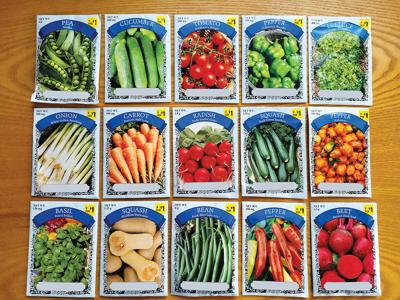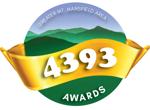Communities around the world are cultivating seed libraries. A surge in new gardeners and struggling supply chains during the pandemic caused the rise of seed libraries.
For many, gardening was a failsafe during these stressful times. People generously shared seeds to support their neighbors and the larger community.
A seed library is a collection of seeds held at a public library or other entity for the purpose of distributing them to local community members. Members can “borrow” seeds to plant in their gardens and return surplus seeds, including those they purchased or open-pollinated seeds they saved from their own gardens.
Post-pandemic, people are continuing to garden, finding joy and resilience in the practice. Sharing seeds continues to be a way to bring people together to share resources, knowledge and nourishment.
Seed libraries are located throughout the state, often in public libraries or shared community spaces. While they may have different cultures, seed libraries aim to increase access to seeds for local gardeners.
These seed resources can add to local food security efforts by providing affordable (often free) seeds among neighbors. In addition, they offer a great way to try a new vegetable commonly grown by some of our diverse communities in Vermont.
Beginning gardeners are welcome and encouraged at many seed libraries. When you first visit your local seed library, make sure to look for borrowing information.
The posted information will advise how many seeds borrowers may take. When using seeds that have been saved from a home garden, you will likely need to start two to three seeds per plant desired. Germination rates of home-saved seeds are generally lower than what you can expect from a commercial supplier.
Cataloging methods will vary in method and formality, but it is not uncommon for seed libraries to label seeds that are ideal for those new to gardening. Beginners also will appreciate being able to try a small number of seeds rather than investing in several varieties that may be challenging to grow or need special conditions to thrive.
Membership information may be required to take and share seeds. You also may be asked to maintain a seed record to document what seeds you borrow and any you share back with the library.
Seed libraries generally do not require borrowers to share seed in return. However, to keep your local seed library going, consider donating extra purchased seeds or learn to save seeds yourself to give back to your community.
After you have planted and harvested some of your seeds, you can try saving some of your own seeds. You will likely have enough to save for next year and some to share with your seed library.
To get started, visit extension.psu.edu/seed-saving-basics for basic instructions.
Take good notes on the plants you save seeds from. Other borrowers will enjoy reading about germination times, days to maturity, flavor, storage and any other information you have to share. If you know the variety name, be sure to share that, too.
An internet search will help you locate a seed library in your area. Stop by and see what is available. Borrow and plant some seeds. Save some seeds to help sustain your local seed library and the self-sufficiency of your community.
Andrea Knepper is a UVM Extension master gardener from Bolton.




















(0) comments
Welcome to the discussion.
Log In
Keep it clean. Please avoid obscene, vulgar, lewd, racist or sexual language.
PLEASE TURN OFF YOUR CAPS LOCK.
Don't threaten. Threats of harming another person will not be tolerated.
Be truthful. Don't knowingly lie about anyone or anything.
Be nice. No racism, sexism or any sort of -ism that is degrading to another person.
Be proactive. Use the "Report" link on each comment to let us know of abusive posts.
Share with us. We'd love to hear eyewitness accounts, the history behind an article.